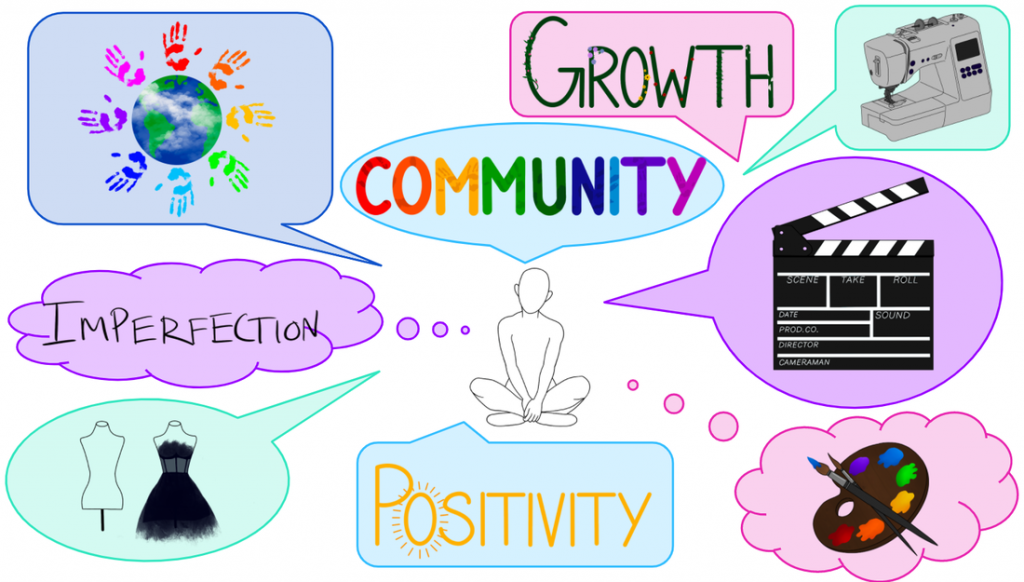Research & Insights / Designing Virtual Internships in the Creative Sector: Developing Wrap-around Supports and Authentic Relationships
Designing Virtual Internships in the Creative Sector: Developing Wrap-around Supports and Authentic Relationships

This blog is part of a series on Designing Virtual Internships in the Creative Sector drawing from experiences managing the Bloomberg Arts Internship program in Boston through sharing the learnings and key takeaways for effective creative youth development and employment models.
Designing virtual internships with adequate wrap-around supports and structures is critical for interns to be supported personally and professionally. A coordination between EdVestors staff, families, program partners, and worksites ensures interns are in an environment where they can thrive.
Virtual youth internships are effective with the right worksite staff and wrap-around supports.
The necessity of operating an entirely remote summer employment program in 2020 presented a range of challenges that the BAI team had to address. In addition to ensuring each intern was equipped with the technology necessary to participate remotely, the program model also required additional staff attention to the quality of the remote internship placements and ongoing communication with the worksites to ensure the updated job responsibilities reflected the new reality of remote work placements. EdVestors staff developed clear criteria for selecting worksites that led to the identification and selection of arts and cultural institutions which were well suited to supervise and support high school-age interns. The worksite criteria included:
- Being able to provide meaningful and fully developed work opportunities;
- Having a clearly defined job description with an arts administration or production focus;
- Familiarity with and commitment to employing a Creative Youth Development approach in program design and implementation, and
- Having experience working with and/or mentoring teens.
EdVestors staff recognized the potential challenges of working and supervising high school interns remotely and they worked closely with their worksite partners to acknowledge these challenges and provide support. Establishing a strong mentor-like connection with a new intern remotely was challenging and these relationships benefitted from the arts and culture worksite supervisors being warm, engaging and proactive in their efforts to make connections with their interns.
When worksites encountered challenges, they did not hesitate to inform EdVestors staff so they could intervene and provide support as needed. This is reflective of EdVestors role as an arts education intermediary with more than a decade long tenure of partnership with the Arts and Culture community. In a year where everyone needed support, organizations and individuals alike, EdVestors with the support of Bloomberg Philanthropies leveraged its vantage point as an intermediary to provide increased financial resources to worksites, both acknowledging the increased workload to redesign and providing critical resources to an industry sector deeply affected by the economic fall out of the pandemic.
EdVestors staff also held small group listening sessions, surveyed, and provided one-on-one assistance to worksites so that the resulting internship fit well within the organization’s capacity in a pandemic context and was still mutually beneficial to students and organizations. EdVestors modeled a similar relationship-building approach with worksites as they did with students, including supervisor check-ins and follow-up throughout the summer. EdVestors provided timely day-to-day technical assistance when worksites needed additional support connecting with students, resolving technology issues, and continued to adapt as the summer moved forward. Several of the supervisors mentioned how valuable they found the support from EdVestors in addressing any obstacles they encountered.
Furthermore, the central elements of the program beyond the worksite placements also had to pivot to utilizing a remote platform, while still ensuring that these essential elements added to the quality of the interns’ experience. Critical changes included restructuring the weekly schedule to provide more community building touchpoints facilitated by EdVestors staff and breaking the intern cohort into smaller groups in order to facilitate remote learning for both writing and coaching. The EdVestors staff also worked to incorporate independent time for the interns (referred to as asynchronous time) into the weekly schedule as a way of combating “Zoom fatigue.”
Structuring the program to have a wide array of adults involved in the program implementation enabled the interns to develop meaningful adult relationships and mentor-like support systems.
By the spring of 2020, it became clear to the EdVestors staff that the BAI program would be entirely remote. With this in mind, the staff made a deliberate decision to develop additional mentor-like support from caring adults for the participating interns, given the inherent challenges associated with the interns having to work remotely. This goal was critical in the success of the summer, as the interns had an array of adults with whom they could connect and learn together. In addition to the consistent adults in the program, interns had access to one-time adult guests who added to their networks and offered resources such as career planning, mental health and financial literacy. With three active EdVestors staff, the addition of Muadi Dibinga as the personal and professional coach, and a new Alumni Advisory Council, along with their 826 tutors and CAC advisors, there were optimal opportunities for connections to be made.
As an example, Julivic Marquez, Education Manager at Urbanity Dance, continues to focus on how the organization can support Ziane after the internship. They are supporting Ziane in the work she is doing at her high school on Diversifying Our Narrative, which includes diversifying the curriculum at her school. Urbanity remains committed to supporting her in an ongoing way, and she is having conversations with the organization’s management about accessing the Urbanity space for meetings (when they can be in-person) and also helping to promote her school project.
Coming up in the next blog, Example of Worksite Experiences: Community Music Center of Boston



